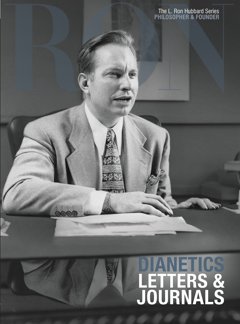Getting The Dianetics To Work
Getting The Dianetics To Work
Blog Article
What Does Dianetics Do?
Table of ContentsDianetics Things To Know Before You BuyUnknown Facts About DianeticsThe Ultimate Guide To DianeticsThe smart Trick of Dianetics That Nobody is Talking About
I couldn't ever before not wish to obtain anything that comes to mind for you- if it was or else, I would not be resting below with you, doing this. I not only could never ever have an issue, or otherwise want to listen to something that enters your mind for you, but I'm totally excited to understand every idea, every idea, every photo or feeling that emerges or shows up for you- don't ever think or else, and if somehow you do, please just let me know! Sometimes, you might have a thought, and photo, concept or occurrence appear that does not appear to respond to the question, or relate to it, yet nonetheless, always do tell me concerning it, and as we proceed, the relevance will certainly emerge for you.This is inherent in the basis of processing, and the topic of this conversation: the basic functions of the counselor and the customer: The basic function of the counselor is, contrary to "typical training", not to manage, which means to impose and/or inhibit, yet to instead work from the basis of EMPOWERING THE CUSTOMER.

Dianetics - Questions
John Mcmasters revealed this standard fact splendidly well in one of his talks on Power handling, wherein he describes how he was asked what this "unique propensity" was that he had for offering such wonderful sessions; he needed to consider that for a minute, and spotted that it was what he wasn't doing, along with what he was doing: he wasn't assessing, evaluating, computing, or actually, producing any type of ideas, let alone verbal expressions, after offering the command and while awaiting the PC to complete their response to their complete satisfaction; he was, merely and only, existing with the PC, and totally interested.
The role of the therapist, demonstrated; that was his "special propensity". I have had my own experience which showed me this well, extremely at an early stage in the video game. In 1982, having just recently completed my training and teaching fellowship on New Period Dianetics, I was running this on a COMPUTER, and there was a point in the session where (being a bit wet behind the ears not yet having many hours under my belt as an expert auditor) the PC seemed to be "taking too lengthy" to reveal anything verbally after I gave him a command.
This secret turned out to be the most important contribution that John ever before made to the image source topic of therapy or bookkeeping (Dianetics). In my simple point of view, it is the biggest useful link contribution that anybody has ever made to these subjectsthe application is entirely non-judgemental, non-evaluative, and without any type of tip, suggestions or opinion.no preconditioned agenda for people, or 'degrees' that they must do
In Scientology we prided ourselves on not assessing for individuals. All that truly suggested was that the auditor did not VERBALLY review for the PC in session.
Dianetics - Truths

Any person who had check this ever seen John audit can not assist but see a special high quality in his auditing."The client's standard role is to be there with the objective of relocating in the direction of their spiritual objectives, and to freely and completely share and experience whatever materializes for them in answering the concerns and executing the directions in the handling.
This is something to process as required. Likewise, individuals frequently have prior experience and/or indoctrination in auditing/processing which, in some methods, and to some levels, really deceives them into mindsets, concepts and actions patterns that stop the complete realization of these roles, and so they will have a tendency to hinder the expressing of what comes to mind, as in the instances provided over - Dianetics. * The initial, and perhaps foremost instances of mis-indoctrination leading to much less than completely smooth and effective sessions, can be located in certain facets of the training regimens, or "TR's":"TR's" are usually a person's very first, or at least early, experience in Scientology, and while I will go on to explain what I see as the flaws in concept and practice, nevertheless, often tend to be significantly therapeutic, done as they are given (Hubbard urges that "TR's are not refining, they are training", however factually, they are both processing AND training)
Alan Walter made similar observations, and boosted on these with his "Existence Processes". There is no "flunking", and no denial of the fact of this being handling. The emphasis, as it ought to be, gets on experiencing the various other person's presence. All the indications which obtain a "fail" in doing "TR-0" are merely the being's initiatives to resist the other individual's presence, and as opposed to being bugged and pestered with "Flunk", which imposes "failing!" on the being, one simply needs to be motivated to "stick their feet in the water a little much deeper", to significantly restore their capability and determination to fully share and experience "being below", or "presence", with others.
The 10-Minute Rule for Dianetics

Report this page